Floods, weather extremes and community resilience in Limpopo, South Africa
Lerato Mutsila
In Limpopo, South Africa, devastating floods expose the destructive power of extreme weather supercharged by a fossil fuelled climate crisis. Yet community resilience shines through as neighbours unite to rebuild and adapt amid climate extremes. A low-pressure system that began in Mozambique gutted homes, washed away roads, and took more than 30 lives. In neighbouring countries, the death toll went into the hundreds and nearly a million people were displaced. I have always known about rivers, dams, rainfall patterns and the quiet, persistent ways water shapes our landscapes. These are things we engage with daily, so I understood water’s nature – its necessity, its patience and its destructive potential. On paper, floods are statistics: millimetres of rain, breached river levels, damaged infrastructure. But it was only when Daily Maverick’s children’s reporter, Tamsin Metelerkamp, photojournalist Felix Dlangamandla and I walked through Mbaula Village beside the now-quiet Mbaula River, one of the hardest-hit areas in Limpopo that the true power of water fully dawned on us. We walked through homes split open like cardboard boxes, fields once promising maize harvests smothered in mud and debris. We traced the more than 1km path along which one survivor had been swept. People described the water arriving with a roar; not a rise, but a wall that gave no warning, offered no mercy and left nightmares behind. People described the water arriving with a roar; not a rise, but a wall that gave no warning. In those moments, it became clear: water does not negotiate. When it overwhelms, it takes everything in its path. Yet amid the wreckage, another kind of power revealed itself. On the ground, we heard stories of neighbours pulling one another from the mud and sharing food, clothes and shelter with those who lost everything. Community leaders organised clean-ups before any official help arrived. Elders offered comfort, faith leaders led prayers and young people cleared debris with their bare hands. Loss was everywhere, but so was solidarity. The floods reminded us that while water can destroy villages, it cannot wash away human connection. In crisis, people did more than survive; they began to imagine how to build back safer and better. These floods are not isolated. They are part of a pattern we can no longer ignore. South Africa has endured devastating floods and prolonged droughts followed by sudden deluges and intensifying heatwaves. Globally, flooding, fires and storms continue to rewrite climate records. The science is clear: a warming world brings greater extremes – and communities already made vulnerable to the impacts of extreme weather are paying the highest price. What Limpopo demands now is not sympathy, but action. Climate adaptation must mean early warning systems that reach rural villages, land-use planning that respects floodplains, resilient housing, protected ecosystems and disaster responses that are swift, coordinated and humane. The water has receded, but the questions it leaves behind are rising. How we answer them will shape our shared future. Lerato Mutsila is a Daily Maverick journalist based in South Africa. A version of this article was originally published by Daily Maverick Earth. Guest authors work with Greenpeace to share their personal experiences and perspectives and are responsible for their own content. Sign the pact, record your story. Join the global movement to make polluters pay. Texte intégral (1532 mots)
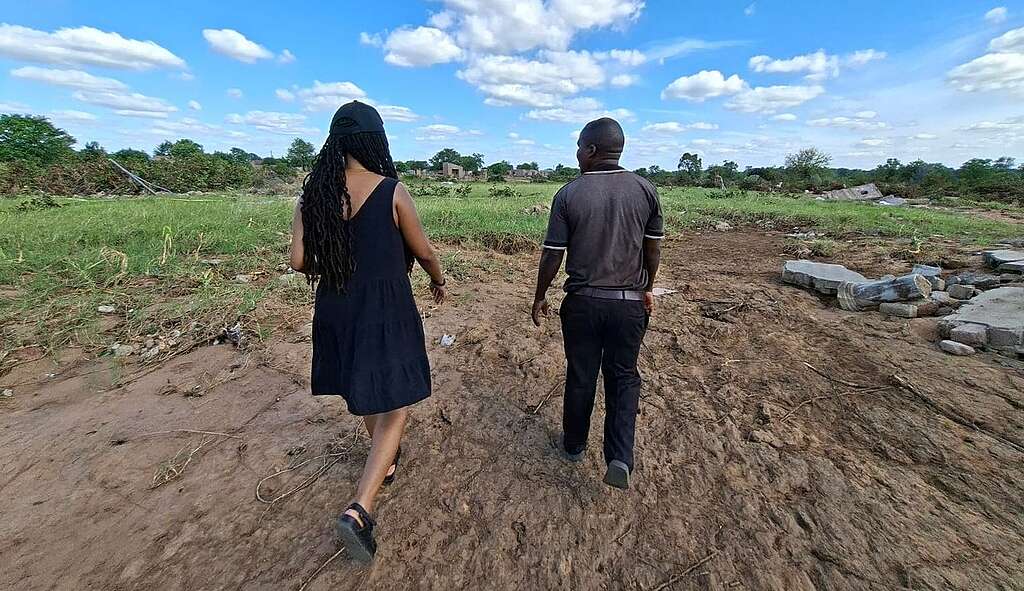
No warning, just devastation
Part of a global crisis
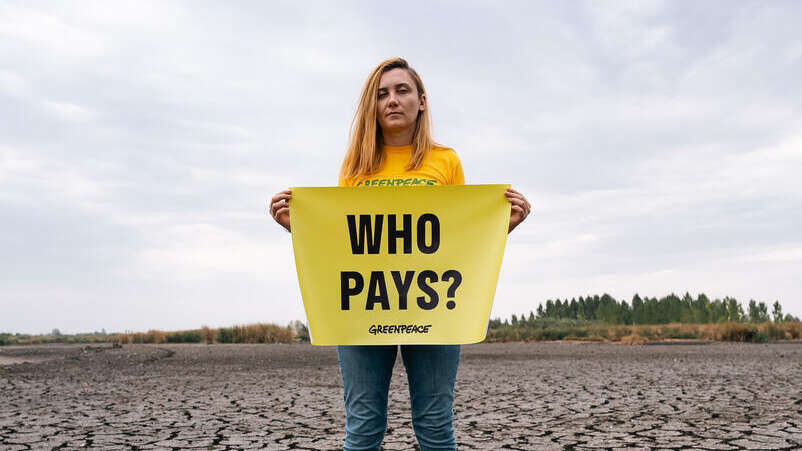
Developing countries on deep sea mining front line stand to gain almost nothing if mining goes ahead – new independent analysis
Greenpeace International
Amsterdam, Netherlands — Mechanisms proposed by the International Seabed Authority (ISA) for sharing any future revenues from deep sea mining fundamentally fail to demonstrate equitable distribution, calling into question one of the fundamental premises on which attempts to justify mining are based, new analysis shows.[1] The research by legal professor Dr Harvey Mpoto Bombaka and development economist Dr Ben Tippet, reveals that proposals currently under consideration would leave developing nations with meagre, token payments from deep sea mining. This configuration is in contrast to the clear United Nations Convention on the Law of the Sea (UNCLOS) mandate that mining must only be carried out for the benefit of humankind as a whole.[2] The real beneficiaries, the research shows, would be yet again a handful of corporations in the Global North. Dr Harvey Mpoto Bombaka, Report Author, Centro Universitário de Brasília said: “What’s described as global benefit-sharing based on equity and intergenerational justice increasingly looks like a framework for managing scarcity that would deliver almost no real benefits to anyone other than the deep sea mining industry. The structural limitations of the proposed mechanism would offer little more than symbolic returns to the rest of the world, particularly developing countries lacking technological and financial capacity.” The analysis, commissioned by Greenpeace International, shows that under a scenario where six deep sea mining sites begin operating in the early 2030s, the revenues that states would actually receive are extraordinarily small. Using proposals submitted by the ISA’s Finance Committee between 2022 and 2025, the returns to states barely register in national accounts. After administrative costs, institutional expenses, and compensation funds are deducted, little, if anything, remains to distribute. By contrast, the private sector would capture the overwhelming share of economic value. While net profits for private companies are not assured, given the high capital and operating costs of deep sea mining, the report illustrates a structural asymmetry. Private actors internalise the upstream value, while public benefits remain narrow, uncertain and deferred. Ruth Ramos, Deep Sea Mining Campaigner, Greenpeace International said: “What Global South governments are being promised amounts to little more than scraps — nowhere near enough to justify tearing open the deep sea. Meanwhile, the environmental costs are pushed onto all of us. Deep sea mining companies are pushing an untested industry that would pocket the gains while offering frontline nations only symbolic crumbs in return. African countries, for example, stand to receive less than 0.5% of royalties. Revenue projections for many countries are equivalent to around 0.001% of their respective GDP. A whole country receiving the same payment as an individual CEO in a wealthy country is equivalent to a rounding error, and an insulting echo of extractivist colonialism.” Pacific Island States, representing the Small Island Developing States (SIDS) in the region where deep sea mining exploration is most advanced, stand on the frontlines of this emerging industry. However, the report shows the average Pacific Island State is expected to receive US$46,000 per year in the medium term. As the area where deep sea mining is poised to begin, they are also among the nations that would bear its impacts most severely. Shiva Gounden, Greenpeace Australia Pacific, Head of Pacific said: “The people of the Pacific would sacrifice the most and receive the least if deep sea mining goes ahead. We are being asked to trade our spiritual and cultural connection to our oceans for almost nothing in return, risking our livelihoods and food sources. The sacrifice for the Pacific is too big to give the green light to deep sea mining. Our Pacific Ocean is not for sale. Protecting this with everything we have is not only fair and responsible but our ancestral duty. The only equitable path is to leave the minerals where they are and stop deep sea mining before it ever begins.” The international seabed is the common heritage of humankind and governments must act quickly to enact a moratorium. ENDS Photos are available in the Greenpeace Media Library Report authors: Dr Harvey Mpoto Bombaka of the Centro Universitário de Brasília Dr Ben Tippet of King’s College London Notes: [1] Equity, Benefit-Sharing and Financial Architecture in the International Seabed Area [2] A key condition for governments to permit deep sea mining to start in the international seabed is that it ‘be carried out for the benefit of mankind as a whole’, particularly developing nations, according to international law (Article 136-140, 148, 150, and 160(2)(g), the UN Convention on the Law of the Sea) Contacts: Texte intégral (1096 mots)
Harvey Mpoto Bombaka holds a PhD in International Law from Aix-Marseille University and the University of Brasília. He is an Associate Professor and Postdoctoral Researcher at Centro Universitário de Brasília (CEUB). His teaching and research focus primarily on international law, the law of the sea, international environmental law, international organizations, international litigation, and legal relations between developed and developing countries. He has held several international research appointments, including as a Nippon Fellow in the Capacity Building and Training Programme on Dispute Settlement under UNCLOS at the International Tribunal for the Law of the Sea (Hamburg, 2017–2018). In 2023, he participated in the GESTOR II offshore expedition, organized by the Brazilian Navy and LEPLAC, in the context of Brazil’s continental shelf extension campaign in the Atlantic Ocean and seabed mapping activities.
Ben Tippet is a Lecturer in Economics and Wealth Inequality in the Department of International Development at King’s College London, where he also co-leads the Technology, Inequality and Development Research Group. His research focuses on wealth and income inequality, global climate action, fiscal redistribution policies, and the political economy of development and inequality. Tippet has expertise in quantitative methods including macro-econometrics and agent-based modelling, and his work engages empirically and theoretically with questions of power, distribution, taxation and development.
Sol Gosetti, Media Coordinator for the Stop Deep Sea Mining campaign, Greenpeace International, +34 633 029 407, sol.gosetti@greenpeace.org
Greenpeace International Press Desk, +31 (0) 20 718 2470 (available 24 hours), pressdesk.int@greenpeace.org
Equity, Benefit-Sharing and Financial Architecture in the International Seabed Area
Greenpeace International
A new independent study by Dr Harvey Mpoto Bombaka (Centro Universitário de Brasília) and Dr Ben Tippet (King’s College London), commissioned by Greenpeace International, reveals that current International Seabed Authority revenue-sharing proposals would return virtually nothing to developing countries — despite the requirement under the UN Convention on the Law of the Sea (UNCLOS) that deep sea mining must benefit humankind as a whole. Download the report: Equity, Benefit-Sharing and Financial Architecture in the International Seabed Area Executive Summary: Equity, Benefit-Sharing and Financial Architecture in the International Seabed Area (174 mots)
Instead, the analysis shows that the overwhelming economic value would flow to a handful of private corporations, primarily headquartered in the Global North.
Reheating plastic food containers: what science says about microplastics and chemicals in ready meals
Daniel Read
How often do you eat takeaway food? What about pre-prepared ready meals? Or maybe just microwaving some leftovers you had in the fridge? In any of these cases, there’s a pretty good chance the container was made out of plastic. Considering that they can be an extremely affordable option, are there any potential downsides we need to be aware of? We decided to investigate. There’s no shortage of research showing how microplastics and nanoplastics have made their way throughout the environment, from snowy mountaintops and Arctic ice, into the beetles, slugs, snails and earthworms at the bottom of the food chain. It’s a similar story with humans, with microplastics found in blood, placenta, lungs, liver and plenty of other places. On top of this, there’s some 16,000 chemicals known to be either present or used in plastic, with a bit over a quarter of those chemicals already identified as being of concern. And there are already just under 1,400 chemicals that have been found in people. Not just food packaging, but plenty of household items either contain or are made from plastic, meaning they potentially could be a source of exposure as well. So if microplastics and chemicals are everywhere (including inside us), how are they getting there? Should we be concerned that a lot of our food is packaged in plastic? The growing trend towards ready meals, online shopping and restaurant delivery, and away from home-prepared meals and individual grocery shopping, is happening in every region of the world. Since the first microwaveable TV dinners were introduced in the US in the 1950s to sell off excess stock of turkey meat after Thanksgiving holidays, pre-packaged ready meals have grown hugely in sales. The global market is worth $190bn in 2025, and is expected to reach a total volume of 71.5 million tonnes by 2030. It’s also predicted that the top five global markets for convenience food (China, USA, Japan, Mexico and Russia) will remain relatively unchanged up to 2030, with the most revenue in 2019 generated by the North America region. A new report from Greenpeace International set out to analyse articles in peer-reviewed, scientific journals to look at what exactly the research has to say about plastic food packaging and food contact plastics. Here’s what we found. Our review of 24 recent articles highlights a consistent picture that regulators, businesses and consumers should be concerned about: when food is packaged in plastic and then microwaved, this significantly increases the risk of both microplastic and chemical release, and that these microplastics and chemicals will leach into the food inside the packaging. And not just some, but a lot of microplastics and chemicals. When polystyrene and polypropylene containers filled with water were microwaved after being stored in the fridge or freezer, one study found they released anywhere between 100,000-260,000 microplastic particles, and another found that five minutes of microwave heating could release between 326,000-534,000 particles into food. Similarly there are a wide range of chemicals that can be and are released when plastic is heated. Across different plastic types, there are estimated to be around 16,000 different chemicals that can either be used or present in plastics, and of these around 4,200 are identified as being hazardous, whilst many others lack any form of identification (hazardous or otherwise) at all. Ultimately, we are left with evidence pointing towards increased release of microplastics and plastic chemicals into food from heating, the regular migration of microplastics and chemicals into food, and concerns around what long-term impacts these substances have on human health, which range from uncertain to identified harm. The problem here (aside from the fact that plastic chemicals are routinely migrating into our food), is that often we don’t have any clear research or information on what long-term impacts these chemicals have on human health. This is true of both the chemicals deliberately used in plastic production (some of which are absolutely toxic, like antimony which is used to make PET plastic), as well as in what’s called non-intentionally added substances (NIAS). NIAS refers to chemicals which have been found in plastic, and typically originate as impurities, reaction by-products, or can even form later when meals are heated. One study found that a UV stabiliser plastic additive reacted with potato starch when microwaved to create a previously unknown chemical compound. Although none of this sounds particularly great, this is not without precedence. Between what we do and don’t know, waiting for perfect evidence is costly both economically and in terms of human health. With tobacco, asbestos, and lead, a similar story to what we’re seeing now has played out before. After initial evidence suggesting problems and toxicity, lobbyists from these industries pushed back to sow doubt about the scientific validity of the findings, delaying meaningful action. And all the while, between 1950-2000, tobacco alone led to the deaths of around 60 million people. Whilst distinguishing between correlation and causation, and finding proper evidence is certainly important, it’s also important to take preventative action early, rather than wait for more people to be hurt in order to definitively prove the point. This is where adopting the precautionary principle comes in. But as it stands currently, the precautionary principle isn’t applied to plastics. For REACH in particular, plastics are assessed on a risk-based approach, which means that, as the plastic industry itself has pointed out, something can be identified as being extremely hazardous, but is still allowed to be used in production if the leached chemical stays below “safe” levels, despite that for some chemicals a “safe” low dose is either undefined, unknown, or doesn’t exist. Governments aren’t acting fast enough to reduce our exposure and protect our health. There’s no shortage of things we can do to improve this situation. The most critical one is to make and consume less plastic. This is a global problem that requires a strong Global Plastics Treaty that reduces global plastic production by at least 75% by 2040 and eliminates harmful plastics and chemicals. And it’s time that corporations take this growing threat to their customers’ health seriously, starting with their food packaging and food contact products. Here are a number of specific actions policymakers and companies can take, and helpful hints for consumers. Trying to dodge plastic can be exhausting. If you’re feeling overwhelmed, you’re not alone. We can only do so much in this broken plastic-obsessed system. Plastic producers and polluters need to be held accountable, and governments need to act faster to protect the health of people and the planet. We urgently need global governments to accelerate a justice-centred transition to a healthier, reuse-based, zero-waste future. Ensure your government doesn’t waste this once-in-a-generation opportunity to end the age of plastic. Ask world leaders to support Global Plastic Treaty so that we can finally turn off the tap and end the age of plastic. Take action: Sign the Global Plastics Treaty petition for a safer and healthier planet. Daniel Read is a Greenpeace US plastics campaigner based in Brisbane, Australia. Texte intégral (2551 mots)
Scientific research increasingly shows that heating food in plastic packaging can release microplastics and plastic chemicals into the food we eat. A new Greenpeace International review of peer-reviewed studies finds that microwaving plastic food containers significantly increases this release, raising concerns about long-term human health impacts. This article summarises what the science says, what remains uncertain, and what needs to change. 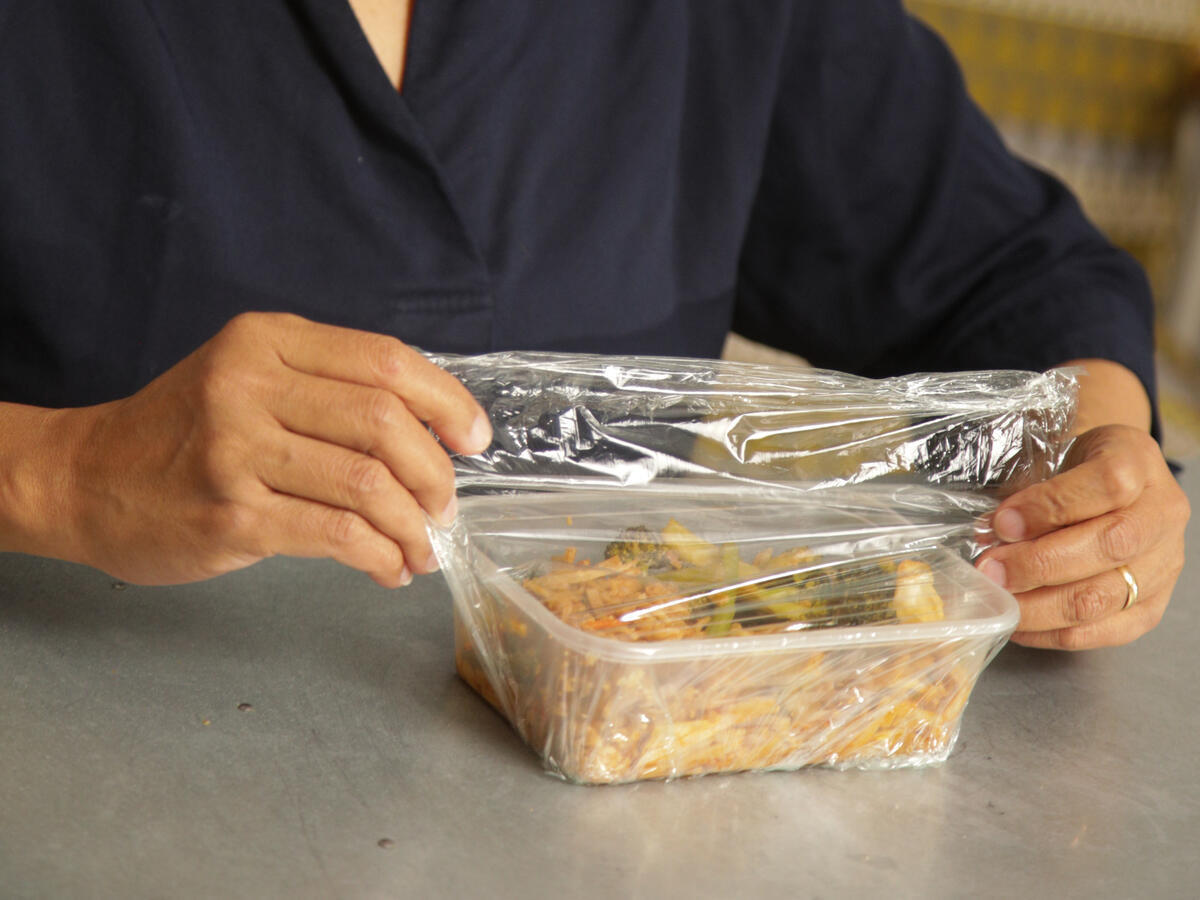
Plastic food packaging: the good, the bad, and the ugly
The research also showed that 1,396 food contact plastic chemicals have been found in humans, several of which are known to be hazardous to human health. At the same time, there are many chemicals for which no research into the long-term effects on human health exists.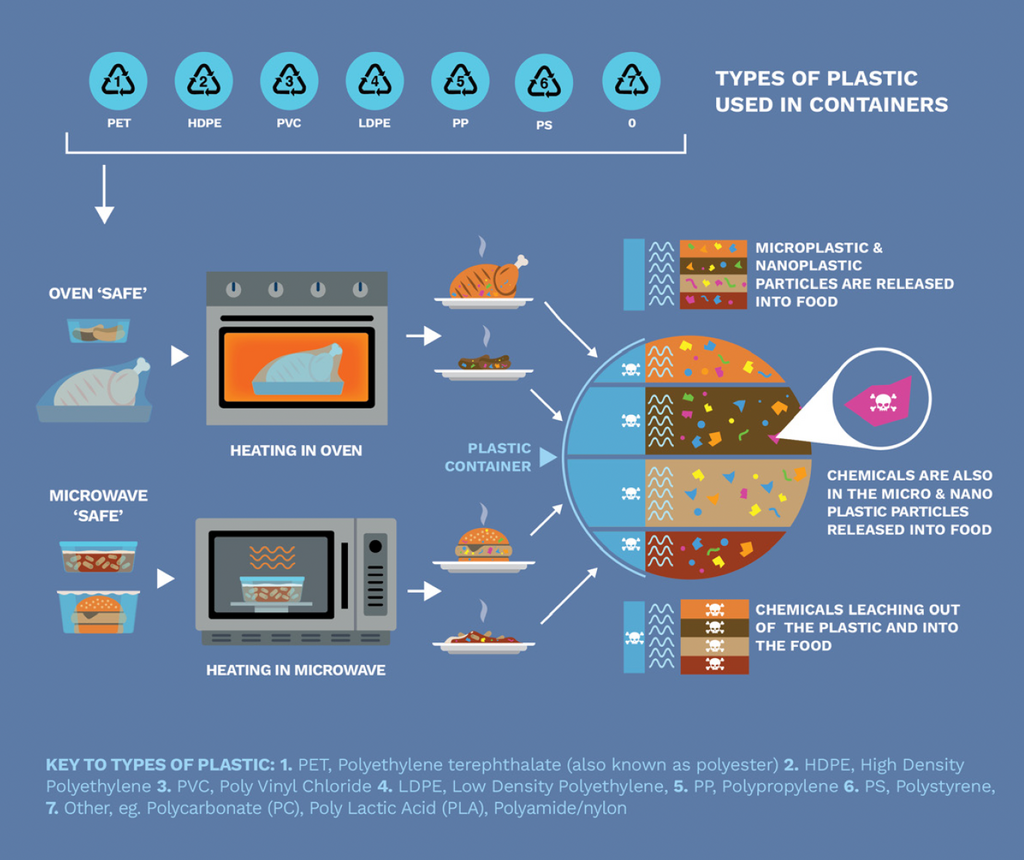
The known unknowns of plastic chemicals and microplastics
We’ve been here before: lessons from tobacco, asbestos and lead
Where to from here?
This means shifting the burden of proof away from consumers and everyone else to prove that a product is definitely harmful (e.g. it’s definitely this particular plastic that caused this particular problem), and onto the manufacturer to prove that their product is definitely safe. This is not a new idea, and plenty of examples of this exist already, such as the EU’s REACH regulation, which is centred around the idea of “no data, no market” – manufacturers are obligated to provide data demonstrating the safety of their product in order to be sold.
A better path forward
Policymakers & companies
Consumers
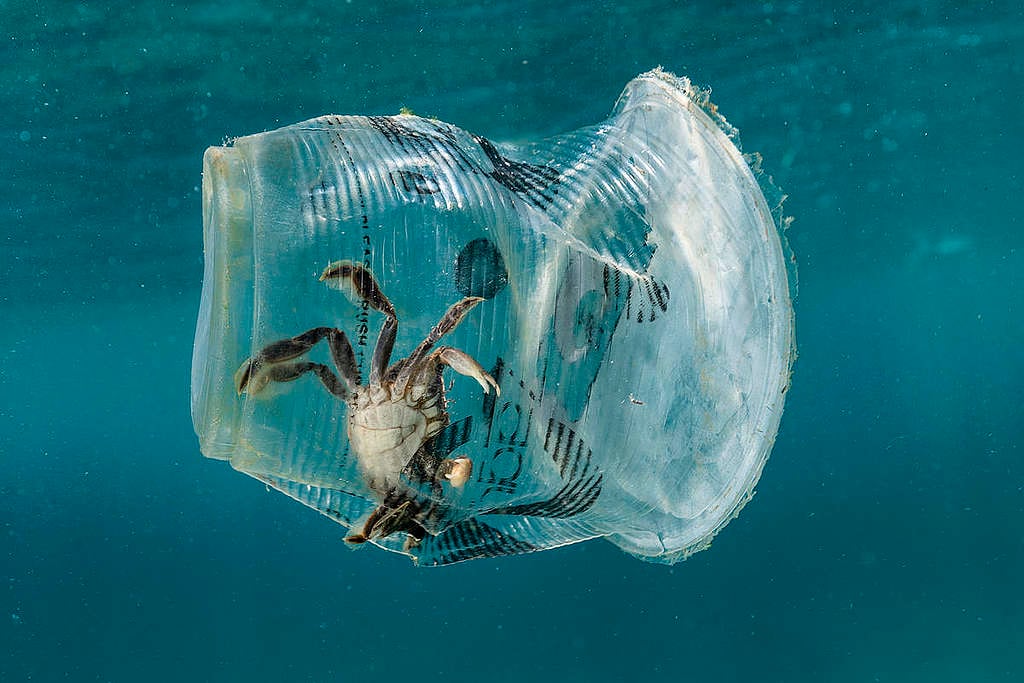
“Are We Cooked?”: New Greenpeace report warns of ready meals flooded with microplastics and toxic chemicals
Greenpeace International
Amsterdam – Heating plastic-packaged ready meals and takeaways in the microwave or oven can release hundreds of thousands of micro- and nanoplastic particles along with a cocktail of toxic chemicals directly into food, according to a new Greenpeace International analysis of peer-reviewed science. The report, Are We Cooked? The Hidden Health Risks of Plastic-Packaged Ready Meals, reviewed 24 recent scientific studies and finds that convenience food items marketed as “safe-to heat” are in fact potentially exposing millions of people to invisible contaminants every day. Graham Forbes, Global Plastics Campaign Lead from Greenpeace USA, said: “People think they’re making a harmless choice when they buy and heat a meal packaged in plastic. In reality, we are being exposed to a cocktail of microplastics and hazardous chemicals that should never be in or near our food. Governments have let the petrochemicals and plastics industries turn our kitchens into testing labs. This report shows that corporate claims of “microwave-safe” are no more than wishful thinking. ” Key findings are: Plastic-packaged ready meals are one of the fastest-growing segments of the global food system, worth nearly US$190 billion and rising sharply as households rely more on convenience food, according to a research done by Towards FnB. In 2024, production of ready meals amounted to a global volume of 71 million tonnes, averaging 12.6 kg per person, with the cost of a ready meal and revenue per capita also expected to increase, according to a market research published by Statista. International Energy Agency analysis also showed that plastic packaging accounts for about 36% of all plastics, with global plastic production set to more than double by 2050 from current levels. Regulators have failed to keep up. There is insufficient regulatory guidance around the world on microplastics released from food packaging, and labels such as “microwave safe” or “oven safe” provide what the report calls false reassurance to consumers. The report warns that the plastics crisis is following the same pattern seen with tobacco, asbestos and lead. While there are overwhelming scientific warning signs, it has been met with industry denial and regulatory delay. In the U.S. alone, the social cost of plastic across its lifecycle is estimated to be up to US$1.1 trillion per year, according to a report by Duke University. As governments negotiate the UN Global Plastics Treaty, Greenpeace is urging negotiators to act on the precautionary principle and end this uncontrolled and unregulated plastic and chemical contamination that threatens human health. “Are we being poisoned while trying to feed our families? The risk is clear, the stakes are high and the time to act is now. We cannot rely on misleading promises from corporations. Governments must act now by delivering a strong Global Plastics Treaty that protects human health and cuts plastic production at the source,” Forbes said. ENDS Photos can be accessed in the Greenpeace Media Library. Contacts: Angelica Carballo Pago, Global Plastics Campaign Media Lead, Greenpeace USA, +63 917 1124492, angelica.pago@greenpeace.org Greenpeace International Press Desk, +31 (0) 20 718 2470 (available 24 hours), pressdesk.int@greenpeace.org Texte intégral (762 mots)
Are We Cooked? The Hidden Health Risks of Plastic-Packaged Ready Meals
Greenpeace International
Ready meals and takeaways promise convenience – hot food, fast. The labels on the plastic trays reassure us that they are ‘safe’ to heat in a microwave or oven. But are we exposed to potentially dangerous microplastics and chemical additives along with our food? We decided to check. Greenpeace International’s analysis of 24 research papers in peer-reviewed scientific journals found that the plastics we use to package our food are exposing us to health risks – and none more so than heated ready meals and takeaways. Regulators and the industry are failing to act on the plastics problem, which is already causing a global waste crisis, yet the production of plastic is set to more than double by 2050 from current levels. The fossil fuel and petrochemical industry is banking on this for its future growth – and relying on the growing trend for plastic packaged ready meals. Past experience shows that the costs to society multiply when action is delayed by the denial of convincing scientific evidence. This has led to health and environmental disasters, from tobacco, to asbestos, to hazardous chemicals. When it comes to plastics, we already know that their global health impacts are costing trillions, and have more than enough evidence to act. Download the report: Are We Cooked? The Hidden Health Risks of Plastic-Packaged Ready Meals (263 mots)
Greenpeace Pictures of the Week
Greenpeace International
Greenpeace has given new meaning to a statue in New Zealand, occupied an airport for 36 hours, and celebrated Valentine’s Day with a political march. Here are a few of our favourite images from Greenpeace work this week. Comment below which you like best! New Zealand – Greenpeace Aotearoa turned the iconic Rakaia salmon statue into a cartoon-style ‘dead fish’, adding crosses for eyes and a speech bubble reading ‘Fonterra killed my family’, in a protest over dairy industry pollution. The town of Rakaia had recently made headlines after a local fishing competition announced that they would no longer be competing over fish size due to the drop in salmon numbers. Instead, anyone who caught a fish would be entered into a raffle for prizes. The Netherlands – Activists from Greenpeace Netherlands occupy the main terminal of Lelystad Airport, Netherlands. The group is calling on the new government to cancel plans for opening the airport to commercial leisure traffic. Closing Lelystad Airport creates space for something much better. The activists are visualising this through an artwork made of Post-its in the main building. On these Post-its, alternative plans for the airport are written, submitted by people via an idea box. France – Greenpeace France proclaims its love for places embodying values threatened by the rise of the far right. One month before the municipal elections of 15 and 22 March 2026 (a crucial vote for the future of local solidarity), Greenpeace France volunteers mobilised on Valentine’s Day to publicly affirm their commitment to places essential to local life: spaces of solidarity, culture, rights, and ecology. They aim to raise public awareness of a major political issue: the rise of the far right and its concrete consequences on local life. The volunteers went to Place de l’Amarre and the Grand Marché in Toulon to talk with passersby. Italy – On the day of the first meeting of the ‘Board of Peace’ for Gaza, Amnesty International Italy and Greenpeace Italy brought a giant screen in front of government building (Palazzo Chigi) and the Ministry of Defense (Farnesina Palace), displaying images of Israeli bombings since last October’s ceasefire agreement, to denounce the continued violations of the truce in the Gaza Strip. The screen also displayed messages such as: ‘Does this look like a truce to you?’, ‘130 days of ceasefire, 600 Palestinians killed’, and the demands of ‘Enough weapons to Israel’ and ‘Stop the genocide in Gaza’ addressed to the Meloni government and the international community. Greenpeace has been a pioneer of photo activism for more than 50 years, and remains committed to bearing witness and exposing environmental injustice through the images we capture. To see more Greenpeace photos and videos, visit our Media Library. Texte intégral (1112 mots)
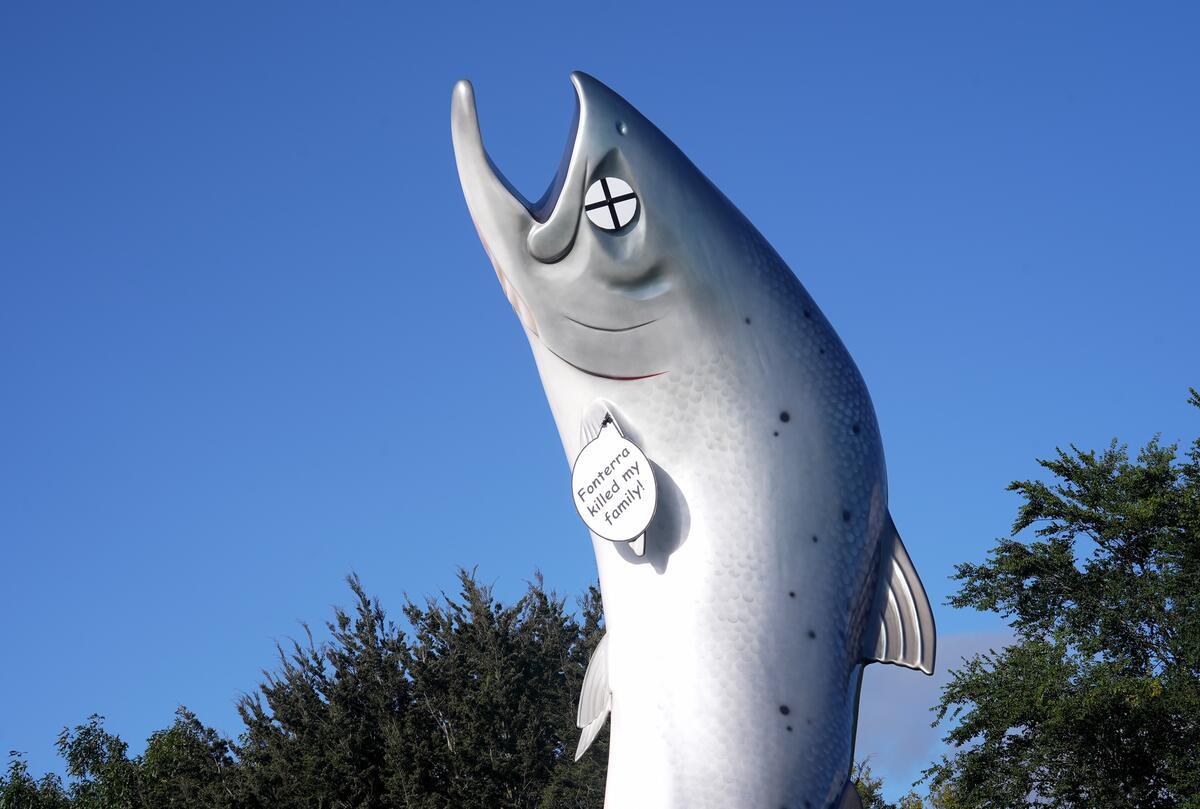
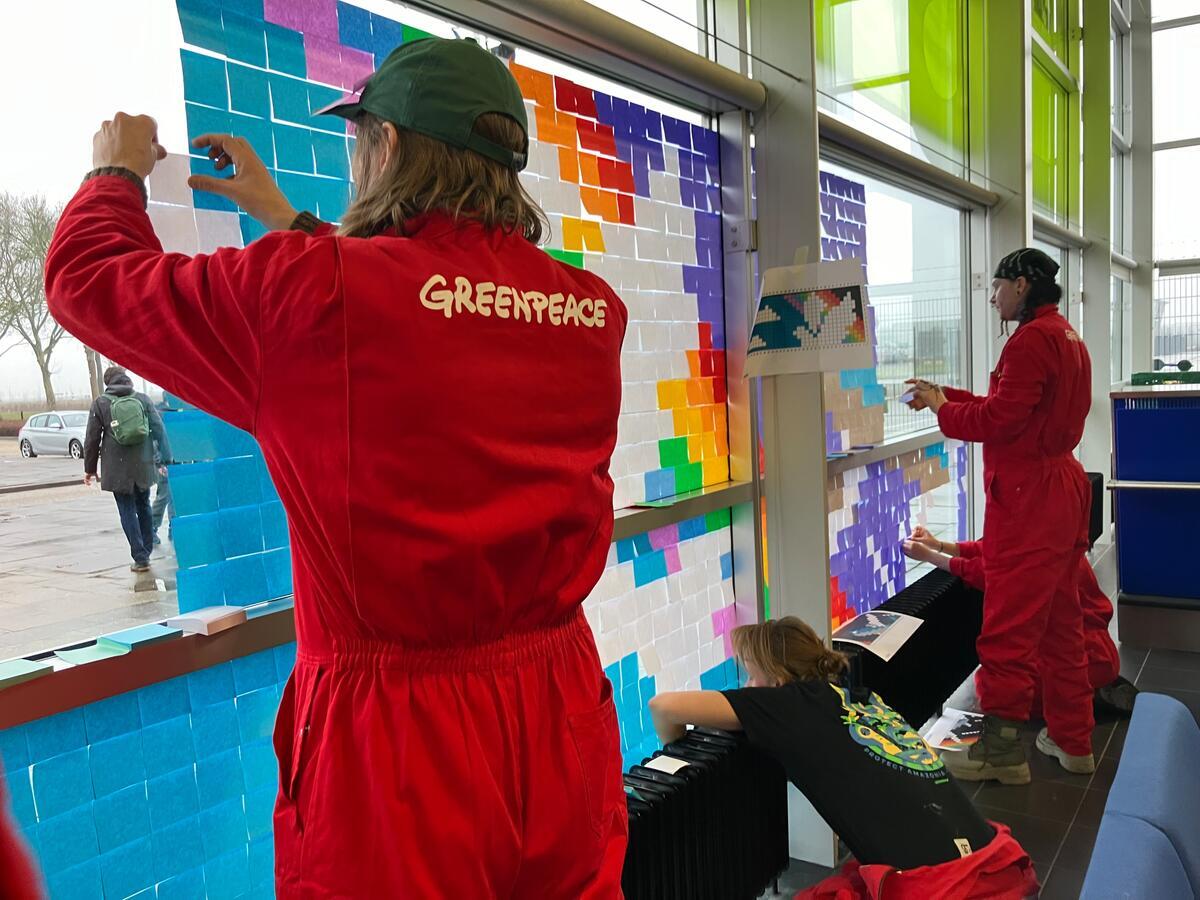
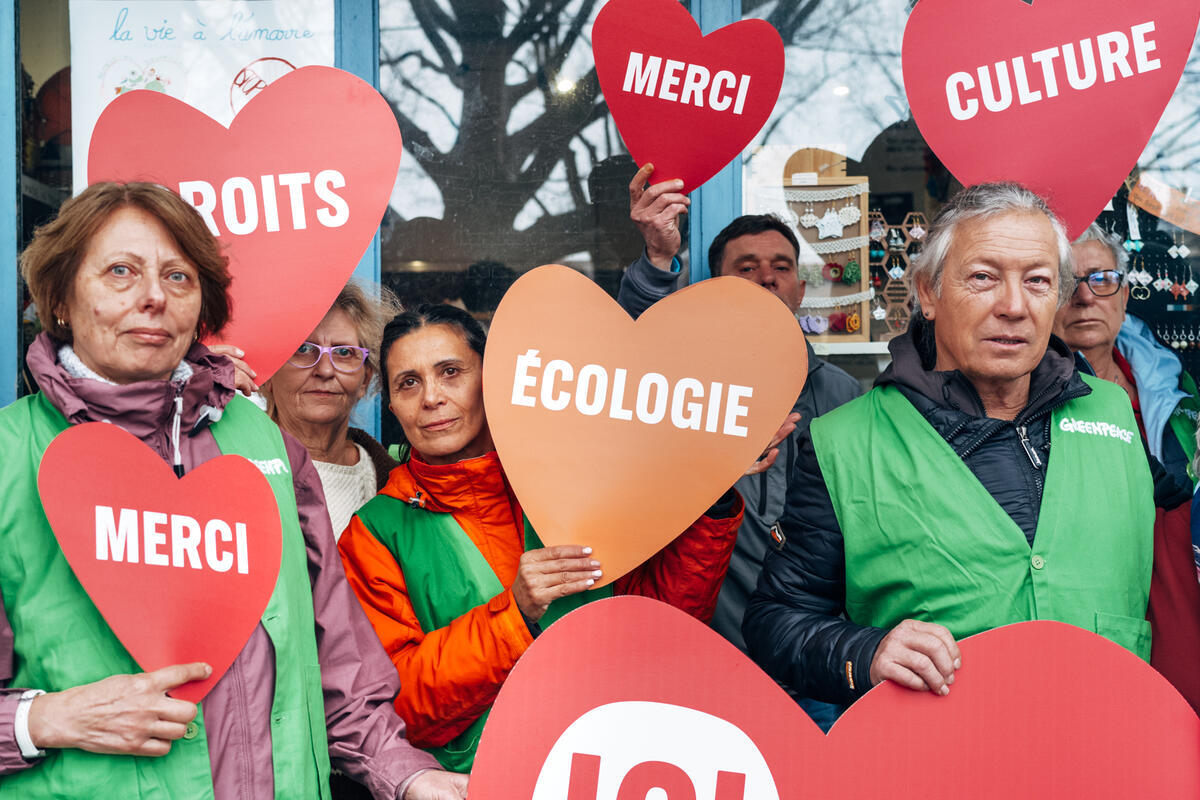

Another year of war in Ukraine: Energy grid attacks among Russia’s escalating crimes
Greenpeace Ukraine
On 24 February 2026, the world marks the fourth anniversary of Russia’s full-scale invasion of Ukraine. While global headlines are filled with news about negotiations and attempts to inspire hope for peace, the Greenpeace Ukraine office is experiencing Russia’s so-called “peaceful intentions” firsthand. For several months now, staff members have had only a few hours of electricity and heating per day, often without hot water, without the ability to use elevators, or to cook meals for themselves and their children. From day one, Russia’s colonial war has been aimed at destroying Ukraine’s existence as an independent and sovereign state with its own culture and language, deliberately targeting civilians, homes, cities, and critical infrastructure. Today, in the 12th year of Russia’s war and the fourth year of the full-scale invasion, Ukraine is facing the deepest energy crisis in its history – a crisis deliberately and systematically created by Russian attacks. Since the start of 2026 alone, 217 attacks on Ukraine’s energy infrastructure have been reported. In January Russia fired more than 6,000 attack drones, around 5,500 guided aerial bombs, and 158 missiles of various types at infrastructure. Thermal power plants, substations, and district heating facilities are repeatedly targeted by Russian missiles and drones. These strikes are not accidental – they are part of a deliberate strategy of energy collapse. The goal is simple: to leave people without light, heat, and water, to turn winter into another front of the war, and to force Ukraine to surrender. While repairs continue, frequent power disruptions leave many families in freezing conditions in the coldest winter in more than a decade. In many Ukrainian cities with district heating systems, electricity is supplied for only a few hours a day, often at night. Businesses, hospitals, schools, and public spaces are forced to operate at the edge of their capacity or shut down altogether, as diesel generators cannot sustain 12–15 hours of continuous operation. At the same time, air raid sirens, drones, and missiles have become the background of everyday life for millions of people. It is precisely in this darkness that Ukraine has gained a very clear understanding: a centralised energy system based on nuclear generation, Russian gas, and fossil fuels is highly vulnerable to war. By contrast, decentralised renewable energy solutions with energy storage save lives. During Russia’s war against Ukraine it became clear that green technologies are no longer just about climate, environmental protection, or cost savings. In Ukraine, they have become a matter of survival, security, and resilience. Decentralised solar panels, heat pumps, batteries, and autonomous power systems have proven their effectiveness in the most extreme conditions. They work when the centralised grid is destroyed. They are harder to eliminate with a single strike and much faster to install or replace. They provide heat, light, and water where it may seem that nothing is left. Patients in hospitals and outpatient clinics can receive vaccinations and medical care on time. Children in schools and kindergartens have alternative power for learning and for staying in shelters – they can wait out danger in warmth and light. Residents of multi-apartment buildings have reliable heat from the energy of the earth. Green solutions are already working today, offering support and hope in extremely difficult times. That is why Greenpeace CEE continues to work in Ukraine during the war. We remain here because this work is critically important right now. Since 2022, our international team, together with local communities, partners, and donors, has been implementing renewable energy projects – from solar systems for medical facilities to comprehensive solutions for communities. One of the most striking examples is the green reconstruction of a multi-apartment building in Trostyanets – a city near the Russian border that suffered occupation and destruction. Today, this building is the first multi-apartment residential building in Ukraine where both space heating and hot water supply are provided exclusively by heat pumps. For us, this is not just a restored building. It is a practical model of Ukraine’s future energy system – decentralised, resilient, and secure. Ukraine’s experience clearly demonstrates that renewable energy is not something for “after the war” or “when things get better.” It is a solution that must be implemented during war if we want to protect people and reduce society’s vulnerability to violence and authoritarianism. Every solar panel, every heat pump, every battery energy storage system is a step towards energy security, independence, and peace. We believe that Ukraine’s future is green, just, and safe. That is why we stay here, work here, and will continue to do so – together with people who prove every day that even in the darkest times, it is possible to build light. At the same time, we call on the entire world: Today, every country, every government, and every conscious individual can help bring real peace closer. Texte intégral (2342 mots)
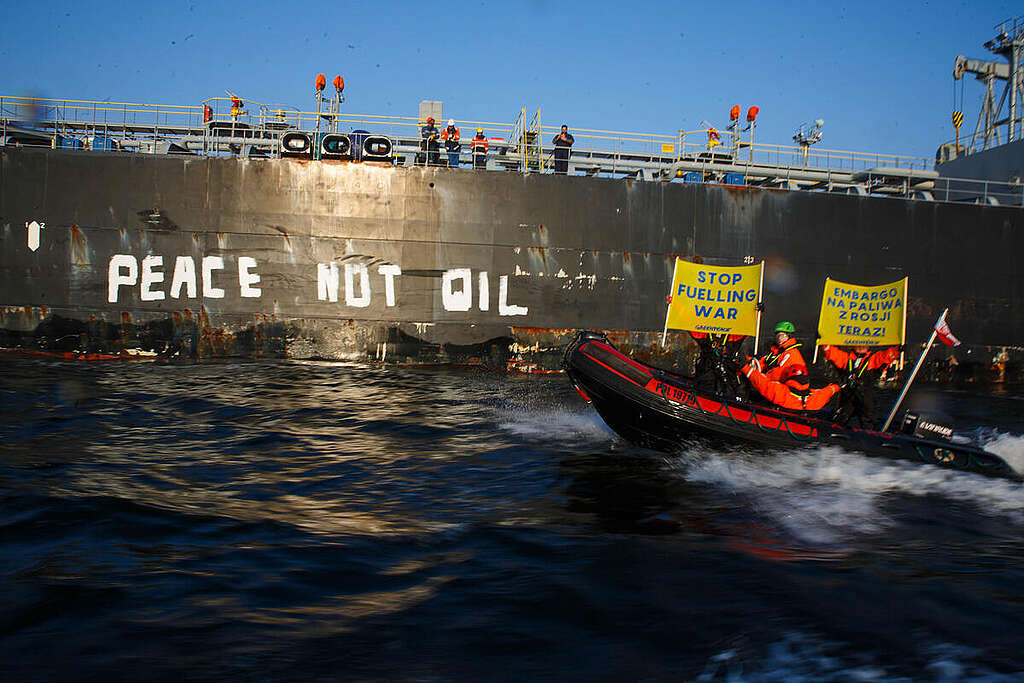
Energy grid strikes are no accident
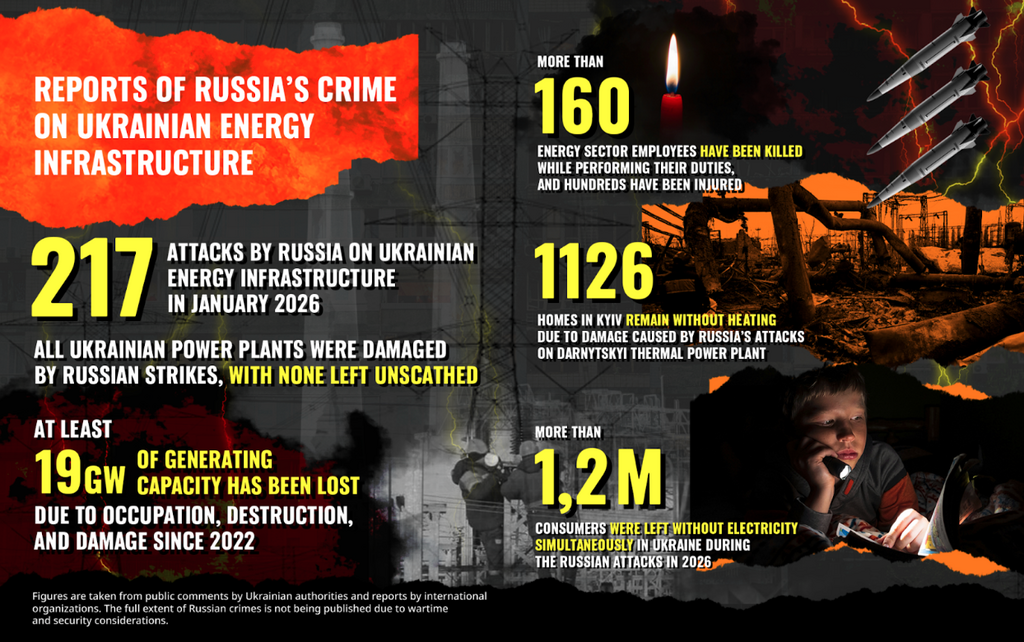
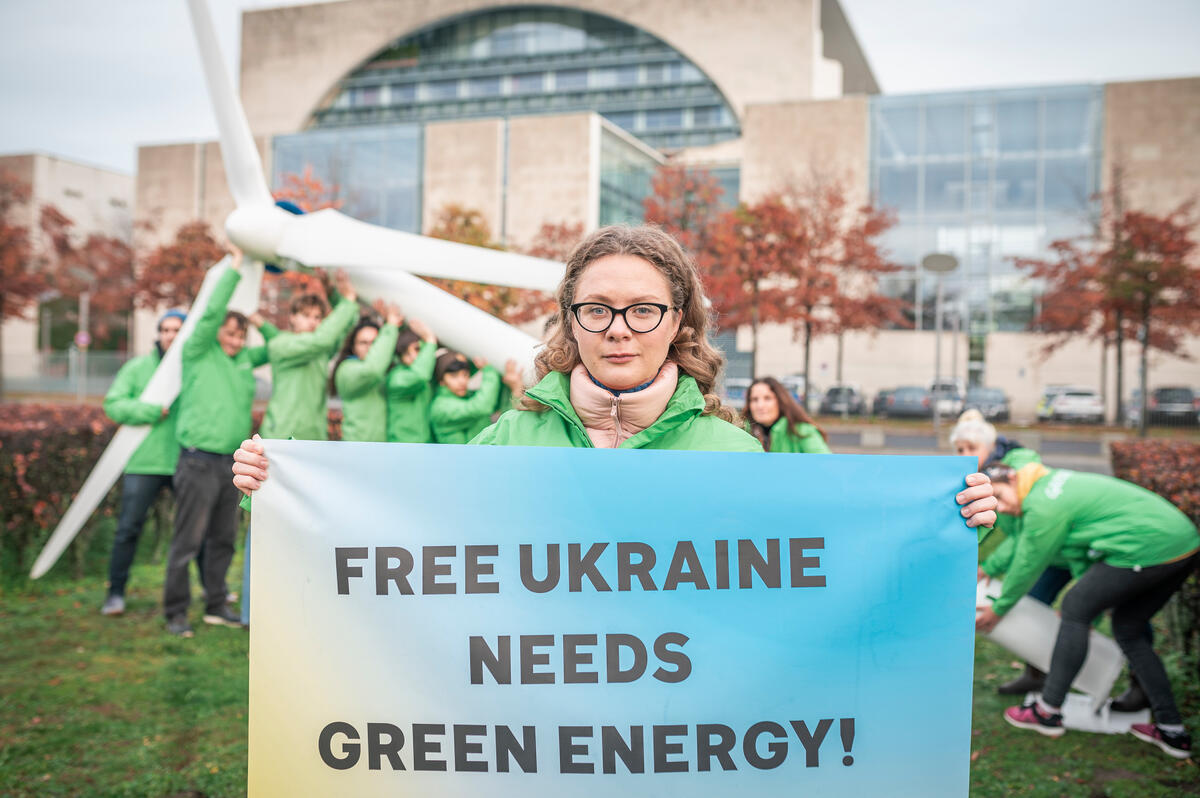
We need a decentralised and renewable energy system
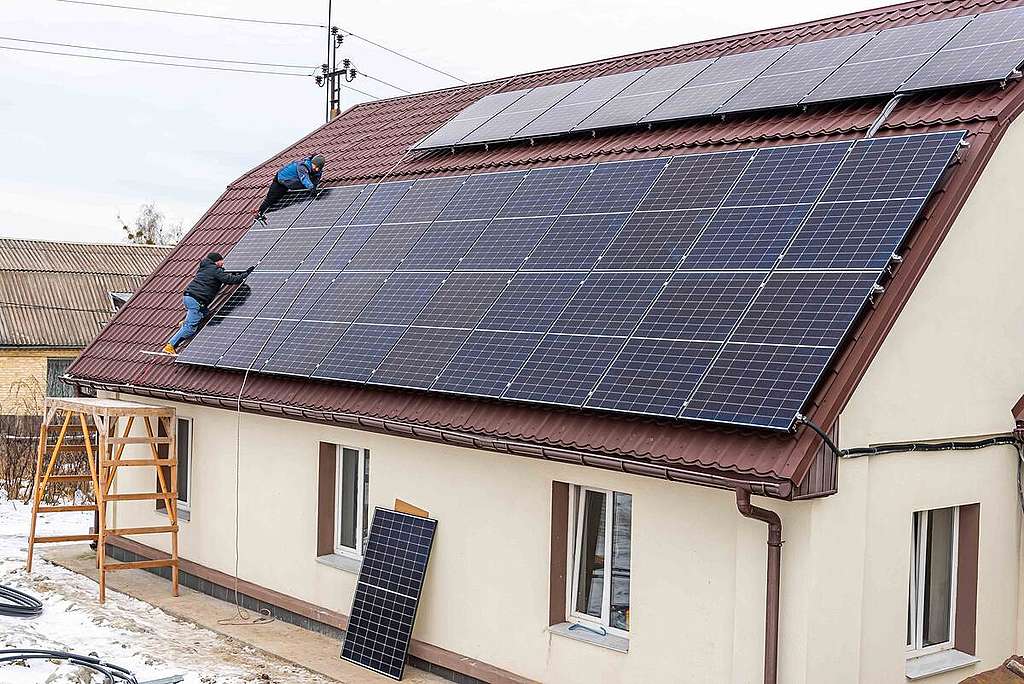
Green energy solutions are generating hope
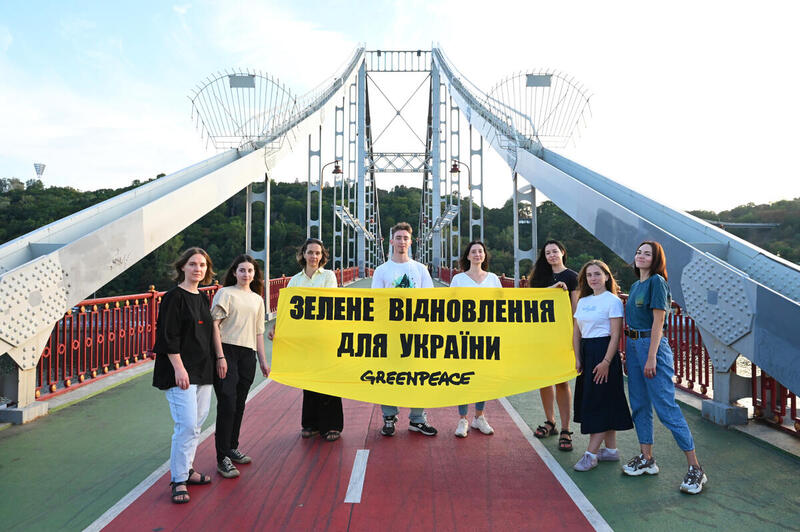
Towards energy security and peace
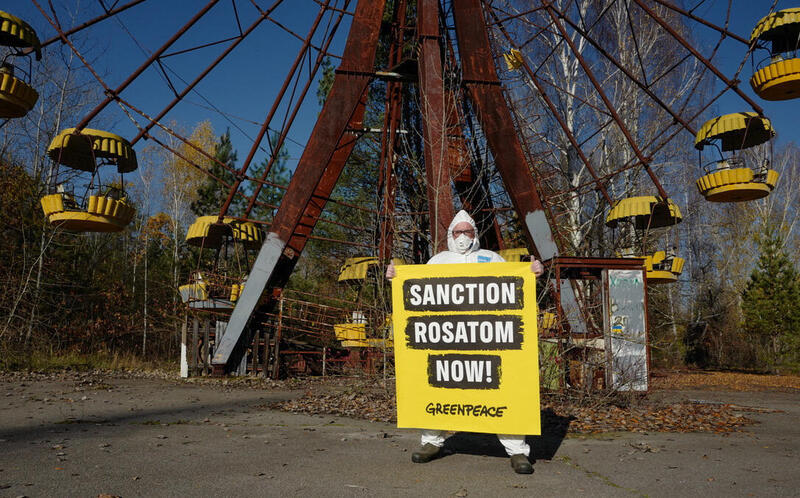
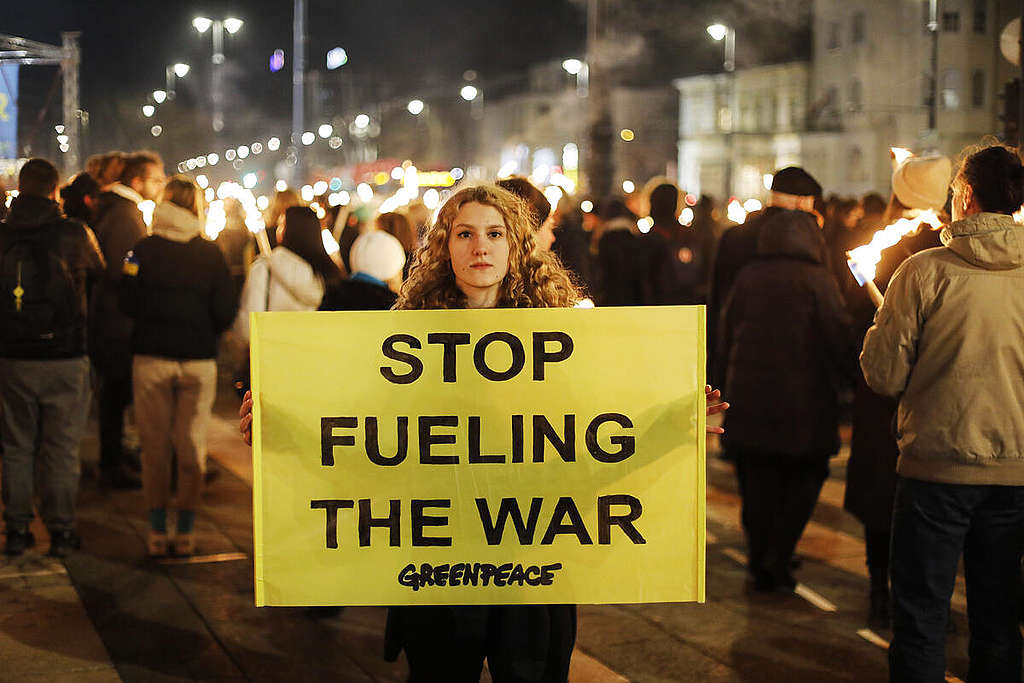
Will the International Olympic Committee stand with athletes or Big Oil?
Martin Zavan
The campaign to end fossil fuel sponsorship of the Olympic Games has escalated rapidly in recent weeks, placing the International Olympic Committee (IOC) under growing public pressure. It began with a simple question: How can a company whose core business is fuelling the climate crisis, sponsor the Winter Olympics, an event that depends on stable snow and ice? Greenpeace Italy launched a satirical video exposing the contradiction at the heart of Eni’s sponsorship of the Milan Cortina 2026 Winter Olympic and Paralympic Games. Eni is one of the biggest oil and gas companies in the world. It highlighted the absurdity of a fossil fuel giant associating itself with winter sport while its emissions contribute to shrinking snow seasons and melting glaciers. It struck a chord. The video, which generated over 3.5 million views across digital platforms, was shared by professional athletes Swedish skier Emelie Forsberg and British ultra runner Damian Hall, and triggered widespread international media coverage. The satire is backed up by science. As things are, by the 2080s more than half of suitable locations will be unable to host the Winter Olympics, according to a rigorous 2024 scientific study commissioned by the IOC. Eni’s annual fossil fuel emissions could melt enough glacier ice to fill 2.5 million Olympic swimming pools, according to research that shows that for every 1 kg of CO2 we put into the air, we eventually lose about 15.8 kg of glacier ice. Shortly after the video release, Greenpeace Italy took the message to the streets of Milan. In Piazza Duomo, activists installed Olympic Rings appearing to drip oil. The visual was stark and deliberate. The Olympic Rings should represent excellence and respect. Instead, they are being used to soften the image of a company whose business model depends on expanding oil and gas production. The installation again drew extensive global media attention. At the same time, Ski Fossil Free, led by Norwegian skier and filmmaker Nikolai Schirmer, delivered a petition with more than 21,000 signatures, including Olympians, to the IOC. Separately, a campaign led by athletes by For Future Games called for an end to fossil fuel sponsorship. Greenpeace supporters have also mobilised in large numbers, adding their voices to the demand through a petition. When the issue was raised directly with IOC President Kirsty Coventry at a daily press briefing, rather than engaging with the substance of the concerns, Coventry responded with general statements that the IOC is always trying to do better and that she welcomes athletes having a voice. Welcoming athletes’ voices is not the same as responding to them. Athletes, fans and winter communities are asking the IOC to end partnerships that allow fossil fuel corporations to use the Olympic brand as a tool for greenwashing. To sidestep that request while praising participation is not leadership. It diminishes the severity of the concerns being raised. Eni’s role in the climate crisis is real and undisputed by anyone not in the pocket of Big Oil. Oil and gas corporations like Eni reportedly spend tens of millions of dollars on sporting sponsorships to distract from the environmental damage caused by their operations. Greenpeace Italy is currently being sued by Eni after stating that the company harms people. That statement was based on a Greenpeace Netherlands calculation that Eni’s self reported 2022 emissions could cause 27,000 excess deaths due to increased temperature alone before the end of the century. Instead of addressing the evidence, Eni has turned to legal intimidation. Against this backdrop, fossil fuel sponsorship of the Winter Games makes a mockery of the Olympic values of respect for people and the environment. The climate crisis is already placing mountain communities and winter tourism under strain. The ski industry supports millions of livelihoods across Europe, and 60 million Europeans ski each year. Without a rapid transition away from fossil fuels, winter sports face an existential threat. Public concern is not limited to a single action. In Milan, Greenpeace Italy joined a broad coalition of civil society groups at a protest rally highlighting the unsustainable nature and climate impact of the Games. Greenpeace’s message from that demonstration was clear: ‘Protect the integrity of the Olympics. Do not allow them to become a platform for polluters.’ From the outset, Greenpeace International and Greenpeace Italy have offered the IOC a constructive path forward sending them an open letter. The Olympic movement has previously shown leadership by banning tobacco advertising. It can do so again by ending fossil fuel sponsorship across all Olympic and Paralympic Games. The IOC occupies a unique position of global influence. Choosing integrity over greenwashing would send a powerful signal far beyond sport. Fossil fuel companies are greenwashing their image by sponsoring big sporting events to hide their destruction. Don’t let them get away with it. Eni is responsible for its pollution. But the IOC is responsible for the partners it chooses. By continuing to accept fossil fuel sponsorship, it risks becoming complicit in polishing the public image of companies whose core business threatens the future of the very Games they sponsor. The question now is simple: Will the IOC listen to athletes, fans and scientists and end fossil fuel sponsorship? Or will it continue to shelter planet heating corporations behind the Olympic Rings? Martin Zavan is a freelance communications specialist with Greenpeace International, based in Sydney, Australia. This blog was edited on 19 February 2026 to reflect that the ‘Oilympics’ video garnered over 3.5 million views and not nearly 7 million views as originally reported. Texte intégral (2023 mots)
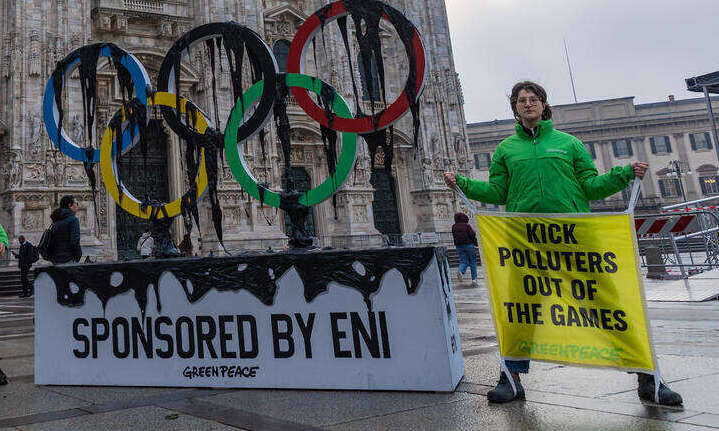
Talking FACTS, not feelings
Eni’s history of greenwashing
Stop Eni’s Olympics sponsorship

From words to action: Governments must use the UN tax talks to deliver fair global tax rules and climate finance
Greenpeace International
New York, United States – As the fourth round of UN Tax Convention negotiations concluded on Friday, governments face a defining choice: seize this once-in-a-generation opportunity to reform global tax rules so they work for people and planet – or retreat to defending systems that are failing to deliver fairness, justice and adequate revenues for combating the most pressing challenges of today.[1] Nina Stros, Global Senior Policy Expert at Greenpeace International’s Political Unit, said: “This round of UN Tax Convention negotiations saw the liveliest debates so far on reforming global tax rules to enhance climate action, sustainable development and hold the super-rich to account. It’s clear that the game is now on for securing a strong outcome on taxing the world’s biggest polluters. “As fossil fuel-driven floods, storms and hurricanes hit more and more countries, and inequality widens as the world approaches its first trillionaire, negotiators are starting to wake up to the huge opportunity. The UN Tax Convention is a once-in-a-generation chance to shift investment away from polluting activities, redistribute wealth, and raise hundreds of billions for climate resilience and public services – without adding to the tax burdens of citizens and consumers.” Greenpeace International’s key takeaways from INC-4: “Action on fair global tax rules that hold polluters to account is a no-brainer. Countries are losing hundreds of billions of dollars each year to multinational and super-rich profit shifting. This action is also hugely popular with the public across right and left-wing voters, as extensive polling has shown. Governments must not settle for vague language that protects the status quo, a fair and sustainable economy is at stake,” Stros adds. The Intergovernmental Negotiating Committee (INC) Fifth Session will be from 3 to 13 August 2026 in New York. ENDS Notes [1] New global tax rules in an UN Framework Convention on International Tax Cooperation are being negotiated until 2027. It aims to take control of global tax rules from the rich OECD countries and place it in the hands of the 193 member states of the United Nations. Contacts Lee Kuen, Global Comms Lead – Fair Share campaign, Greenpeace International. +601112527489, lkuen@greenpeace.org Greenpeace International Press Desk, pressdesk.int@greenpeace.org, +31 (0)20 718 2470 (available 24 hours) Texte intégral (604 mots)
🌱 Bon Pote
Actu-Environnement
Amis de la Terre
Aspas
Biodiversité-sous-nos-pieds
🌱 Bloom
Canopée
Décroissance (la)
Deep Green Resistance
Déroute des routes
Faîte et Racines
🌱 Fracas
F.N.E (AURA)
Greenpeace Fr
JNE
La Relève et la Peste
La Terre
Le Lierre
Le Sauvage
Low-Tech Mag.
Motus & Langue pendue
Mountain Wilderness
Negawatt
🌱 Observatoire de l'Anthropocène

 (@greenpeace)
(@greenpeace)